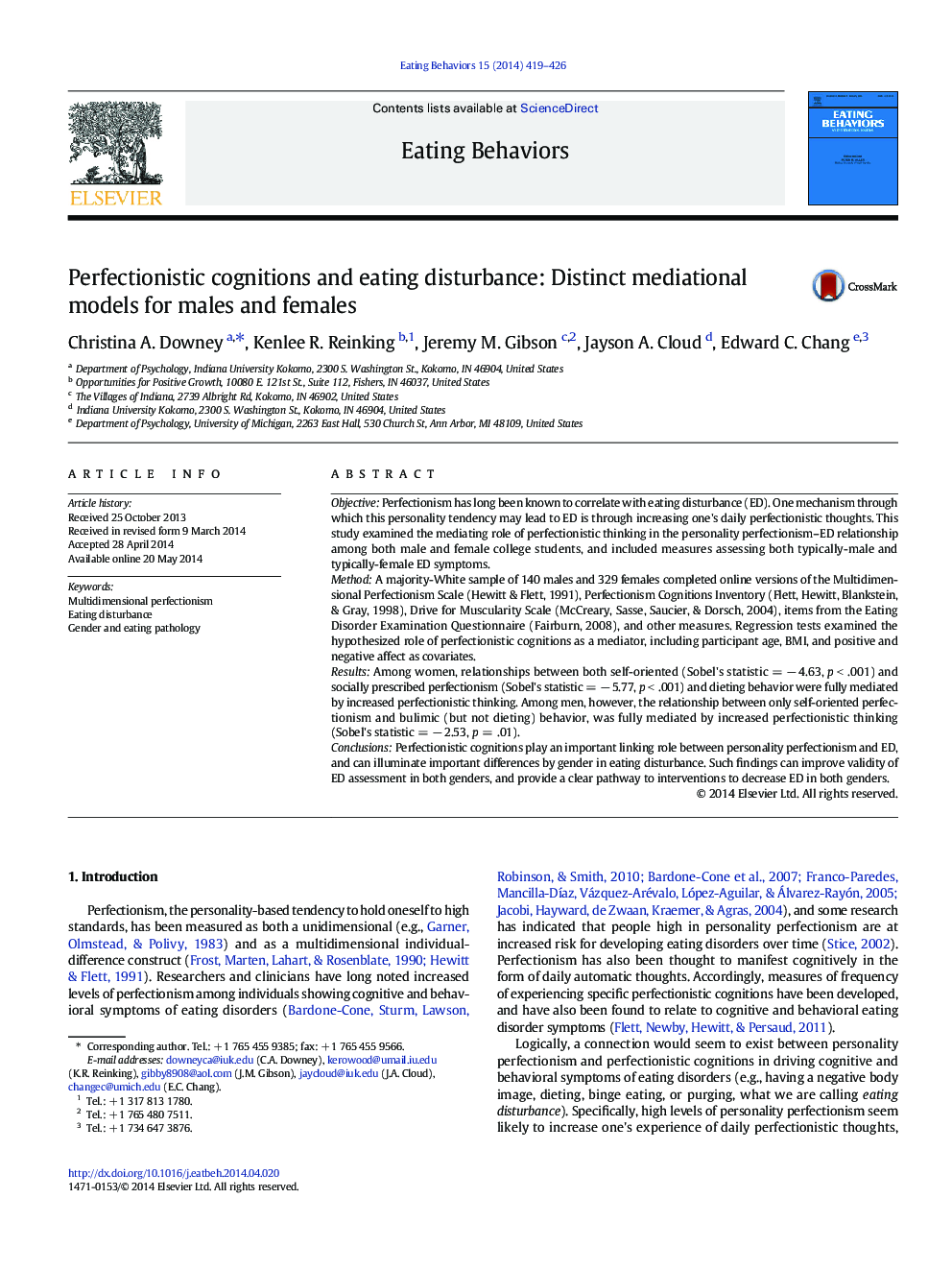| کد مقاله | کد نشریه | سال انتشار | مقاله انگلیسی | نسخه تمام متن |
|---|---|---|---|---|
| 906360 | 917003 | 2014 | 8 صفحه PDF | دانلود رایگان |
• Personality perfectionism and eating disturbance have been known to be interrelated.
• Perfectionistic cognition was found to be a mediator of this relationship among college students.
• Mediation models of dimensions of perfectionism and eating disturbance differed by gender.
ObjectivePerfectionism has long been known to correlate with eating disturbance (ED). One mechanism through which this personality tendency may lead to ED is through increasing one's daily perfectionistic thoughts. This study examined the mediating role of perfectionistic thinking in the personality perfectionism–ED relationship among both male and female college students, and included measures assessing both typically-male and typically-female ED symptoms.MethodA majority-White sample of 140 males and 329 females completed online versions of the Multidimensional Perfectionism Scale (Hewitt & Flett, 1991), Perfectionism Cognitions Inventory (Flett, Hewitt, Blankstein, & Gray, 1998), Drive for Muscularity Scale (McCreary, Sasse, Saucier, & Dorsch, 2004), items from the Eating Disorder Examination Questionnaire (Fairburn, 2008), and other measures. Regression tests examined the hypothesized role of perfectionistic cognitions as a mediator, including participant age, BMI, and positive and negative affect as covariates.ResultsAmong women, relationships between both self-oriented (Sobel's statistic = − 4.63, p < .001) and socially prescribed perfectionism (Sobel's statistic = − 5.77, p < .001) and dieting behavior were fully mediated by increased perfectionistic thinking. Among men, however, the relationship between only self-oriented perfectionism and bulimic (but not dieting) behavior, was fully mediated by increased perfectionistic thinking (Sobel's statistic = − 2.53, p = .01).ConclusionsPerfectionistic cognitions play an important linking role between personality perfectionism and ED, and can illuminate important differences by gender in eating disturbance. Such findings can improve validity of ED assessment in both genders, and provide a clear pathway to interventions to decrease ED in both genders.
Journal: Eating Behaviors - Volume 15, Issue 3, August 2014, Pages 419–426
